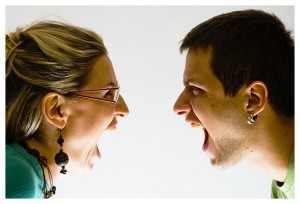The existence of low libido in men
When women endure a sustained period of waning libido, their sex drive is influenced by both physical and emotional factors. Physiologically speaking, there are many processes involving fluctuating hormones that women’s bodies endure that male do not, such as menopause or pregnancy, that influence their sex drives. Though stereotypes paint males as having an insatiable sexual appetite from cradle to grave, men can also suffer from a lack of sexual drive which becomes a chronic problem. Gross generalizations tend to term the occurrence of low libido in men with a lack of physical sexual responses, such as achieving an erection or difficulty in ejaculating. For clarification, men suffering from a low libido can still perform sexually; meanwhile, men with high libidos cannot necessarily achieve an erection or perform. While the happening of a low libido is not as common as medical disorders, such as erectile dysfunction, low libidos are rooted in a variety of physical and psychological causes.

Concerning its causes, the primary cause for a declining libido can be apart of natural aging. Loss of libido has been described to be proportionate with age as the amount of testosterone in a man’s blood decreases as the years pass. In this way, males are similar to their female counterparts whose estrogen and testosterone levels drop off following menopause. Though it takes different effects between males, the drop in testosterone levels is less drastic and sudden than in females and thus men are often in denial as symptoms begin to show. Age is not the only factor in declining libidos in men that occurs because of hormonal activity. Men who suffer from chronic diseases, such as cancer or respiratory disorders, often encounter a drop in sexual satisfaction, either from prescribed medication or because the natural processes of the body have bigger to fish to fry than sexual engagement.
Other physiological causes for declining libidos in men include physical condition and stress. Being overweight, anorexia, running on an unbalanced diet, or holding yourself in poor esteem based on your resulting body appearance all contribute to suffering sexual drives in both genders. It is difficult not to notice the female-targeted teen magazines, such as Cosmopolitan, that promote a scientific breakthrough monthly on how to skyrocket your sex drive if you eat a certain amount of a specific nutrient, or if you engage in such and such a form of exercise. These recommendations are not unfounded, but are often ignored by men because popular culture rarely applies the same standards to them. Gender identity expects for men to internalize their stress or eat as they want. Yet, increasing obesity and perpetual stress caused by our non-stop society is coinciding with an increased outreach for assistance from men regarding declining sexual health.
The influence of stress and self-esteem shines the light on a different cause of low libido in men: the psychological causes. Depression, anxiety disorders, excessive fatigue or stress, and existential crisis all impact the most primitive drive in males. These Psychosexual disorders, such as sexual dysfunctions or perversions, influence the libido of men, as well as how they channel their sexuality. The causes of these psychosexual disorders are often attributed to psychosexual development theory that reflects on childhood to understand an adultís attitude towards sex.
[ad#downcont]Contrary to popular opinion, men’s sex drives can fluctuate throughout their life. In this fast-moving society, which is often viewed to contribute to a libido’s decline or escalations, it is no wonder that men cannot discuss it this stigma. What is known is that low libidos in men are a product of many factors, which is all the more reason why greater understanding and dialogue is required.
